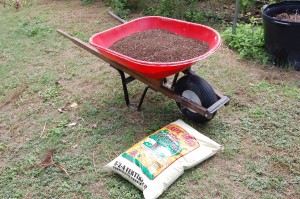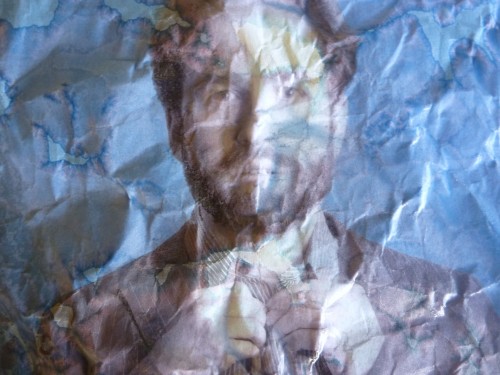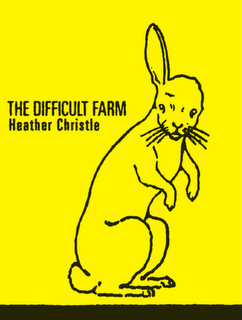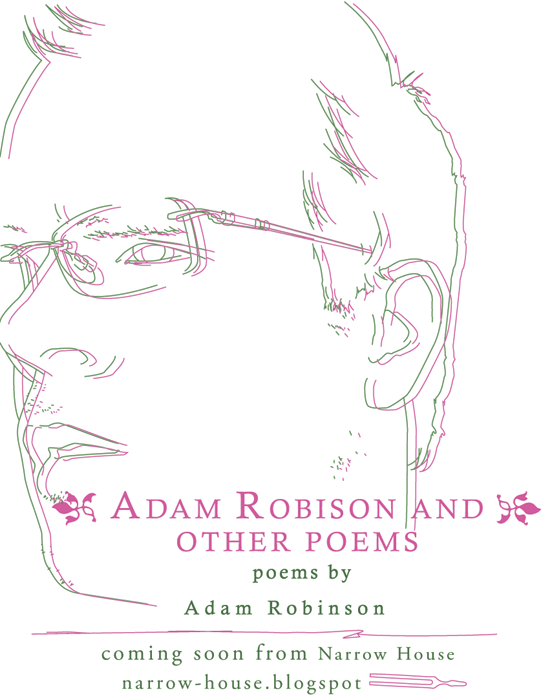Heather Christle Week (4): Cocorico

The epigraph to the Gordon Lish book I quoted the line about poetry from earlier today is this:
Of the world as it exists,
it is impossible
to be enough afraid.– T. W. Adorno
I got out of bed this morning and looked at that and thought about posting the 4th poem this week from Heather Christle’s The Difficult Farm, and then thought, Gordon Lish, you wrote this book in 1983, and though it is still full of many truths, Heather Christle might have you bushwacked, brother. Because I do not feel a fear in Heather Christle’s poems, and by that I do not mean she is fearless with ideas, though she surely is. I mean these poems feel beyond the realm of fear, in that they have accepted fear, and ate it, and though the fear is warm inside them, they are concerned more with discussing, as in the below ‘Coco Rico,’ whether the person sitting next to you on the Ferris Wheel is an impostor or not, and how warm they might be. Also somehow the hairstyling in the face of this great unspoken black wind among black hens: it is less a blank, and more a waking that has already happened: that inversion I was talking about. More meat than there is air. Beautiful stinging pink meat. Heather Christle is our future soda water (and the sound of a French rooster). Thank you.
There is no epigraph to Heather’s book because it has not arrived to the time in which the rest of the book has arrived. So eat it. And take that, Lish.
COCORICO
Any time you buy anything,
you should buy an extra, in case
you really like it. I am aware
this makes me sound dumb, like
I am a really dumb shopper.
But buried in my shoulder
is a light that swells constantly
from dim to full-on glow and back
and it provides me with endless
knowledge, like a nutritional syrup
for the astronauts whose mania
for leisure’s renowned. Maybe
one day we will be the two
lonely souls forced to sit together
on the Ferris wheel. We will need
a signal. What if when we reach
the top you start humming something
from “The Planets”—then I will know
it’s really you and not some radio DJ
trying to give me another prize.
There are a few things I still
have to tell you, like how women
harvest flowers under unfair
conditions and there are members
of my family with less than
perfect hair. Most importantly,
I must convince you that while
it’s true I have the face of a human,
this does not make me a centaur,
manticore, or great Icelandic king.
I’m sure you’re full of questions,
such as Have you heard we are
surrounded by daffodils of normal
proportions? And all I can tell you
is that yes, we are surrounded,
by daffodils, perhaps, but even
more so we are swimming in an air
that’s been touched here and there
with the kind of dust that, once
lit up, won’t let the swimmers go.
Critics on Criticism: William Carlos Williams
 What follows are excerpts from a kind of (scathing) review of a (scathing) review. WCW’s essay, called “A Point for American Criticism,” is directed at Rebecca West, who had published some comments on Ulysses that WCW found wanting in every respect. Sometimes he says “they,” presumably meaning West and her critical cohort. So, from his red wheelbarrow full of glorious vitriol:
What follows are excerpts from a kind of (scathing) review of a (scathing) review. WCW’s essay, called “A Point for American Criticism,” is directed at Rebecca West, who had published some comments on Ulysses that WCW found wanting in every respect. Sometimes he says “they,” presumably meaning West and her critical cohort. So, from his red wheelbarrow full of glorious vitriol:
Forward is the new. It will not be blamed. It will not force itself into what amounts to paralyzing restrictions. It cannot be correct. It hasn’t time. ….
Comment if you like on Joyce’s narcissism but what in the world has it to do with him as a writer? Of course it has, as far as prestige is concerned, but not as to writing….But the expedient is convenient if we want to gain a spurious (psychologic, not literary) advantage for temporal purposes.
What Joyce is saying is a literary thing. It is a literary value he is forwarding. He is a writer. Will this never be understood? ….
The thing is, they want to stay safe, they do not want to give up something, so they enlist psychology to save them. But under it they miss the clear, actually the miraculous, benefits of literature itself. A silent flower opening out of the dung they dote on. They miss Joyce blossoming pure white above their heads. ….
She speaks of transcendental tosh, of Freud, of Beethoven’s Fifth Symphony, of anything that comes into her head, but she has not yet learned–though she professes to know the difference between art and life–the sentimental and nonsentimental–that writing is made of words. ….
Here Joyce has so far outstripped the criticism of Rebecca West that she seems a pervert.
Justin Marks- An HTMLGIANT Exclusive— strip clubs and “If there were more presses, we’d have more books, and that can only be a good thing.”

Preparing to Strip ???
To follow’s a brief interview with Justin Marks, author of a Million in Prizes
Heather Christle Week (3): One of Several Talking Men
 This poem operates on my tenderest muscle tissues as harpoon and actual cautery, both. It functions as a critical emendation of T.E. Hulme’s somewhat shrill cry, “It is essential to prove that beauty may be in small, dry things.” Oh, the poem is certainly not roomy–and it is by no means damp, but it adds heat to what is small and dry.
This poem operates on my tenderest muscle tissues as harpoon and actual cautery, both. It functions as a critical emendation of T.E. Hulme’s somewhat shrill cry, “It is essential to prove that beauty may be in small, dry things.” Oh, the poem is certainly not roomy–and it is by no means damp, but it adds heat to what is small and dry.
The Difficult Farm is never glib, never chary, but these eleven pellucid couplets, in their radical recognition of this one talking man, especially forbid unseriousness, either on the level of form or affect. This quality of seriousness is not, never, to be confused with humorlessness: there is some certain revel here; Heather Christle isn’t coy or cute but she is canny (one example: she has identified this man among several while avoiding the mistake of identifying with him). But I dare you only to laugh at this talking man and not to feel deep shame of the kind you’d feel if you laughed, just laughed, at the foppery of your own grandfather. Or rather, Heather Christle dares you, I should think.
ONE OF SEVERAL TALKING MEN
Because my head is a magnet for bullets
I am spending the day indoors. First
I admired the topiary for several hours
and when my eyes began to ache I rang
for lunch. Lunch arrived with injunctions.
I considered my feet. I did not consider
my altitude. Because I stuffed myself
into the reliquary, I am finding movement
difficult. Luckily, I would not dream
of dancing in this outfit. You must be
a foreign exchange student. Allow me
to make an observation. We live beneath
a frugal moon, and only in her bad light
do our women seem consumptive.
Though what do I know. I am, moreover,
a senatorial moment, and if you don’t
forget me, I may do it myself. You could
conceivably think I’ve never known love,
but I suspect that in the war years, when nurses
bandaged my wounds with repetitive flair,
there existed between us if not affection,
at least a sense that the subject could arise.
See?
And for your Heather Christle Week Hump Day reminder: BUY now here; attempt to takeaway from the giveaways (+ find out when HC is reading near you) here.
Justin Marks the Spot

Justin Marks (A Million in Prizes) is the featured artist over at Tusculum Review. Also, our own Rauan Klassnik interviewed Marks for his blog. Also, Tusculum review is very interesting, and their site is filled with little treasures. Previous featured artists have included such fine folks as Mathias Svalina and Alexis Orgera, both occasional targets of this blog’s affection. You should spend some time there.
Heather Christle Week (2): Stroking My Head With My Deception Stick
This poem from The Difficult Farm kind of inverts me, which is one of the reasons I read. It happens to contain the title of the book, set in the midst of a very disturbing smear of grass and animal and wind. It is made somewhat of human words. Seeing Heather read recently in Atlanta made realize even more distinctly what it is about her language that spins my back.  She read a series of poems from her book all while holding the book open in front of her, but almost never looking at it. The language was in her teeth. Instead, she peered around the room with eyes and watched her voice come out of her and stick to people. There was no food inside the room during this time. She recited as if instead of speaking she were being squeezed gently, deep inside her, a feeling that she had long since become used to, and had even learned in training to enjoy. Her reading voice is not robot-y as such, but like someone’s mechanical welcome creature in an area where your home was several years ago and the land is still the same, but that house smells like ammonia and the wood makes you dizzy. Words kind of giggle out of her and then appear stern, then poke you in the cheek. It’s a nice overall effect, even if thereafter you want to go find the food that was not there and put it in you to rub against the feeling the words have on your organs. It’s neat. And kind of fantastic. Here are some more fantastics, from the book:
She read a series of poems from her book all while holding the book open in front of her, but almost never looking at it. The language was in her teeth. Instead, she peered around the room with eyes and watched her voice come out of her and stick to people. There was no food inside the room during this time. She recited as if instead of speaking she were being squeezed gently, deep inside her, a feeling that she had long since become used to, and had even learned in training to enjoy. Her reading voice is not robot-y as such, but like someone’s mechanical welcome creature in an area where your home was several years ago and the land is still the same, but that house smells like ammonia and the wood makes you dizzy. Words kind of giggle out of her and then appear stern, then poke you in the cheek. It’s a nice overall effect, even if thereafter you want to go find the food that was not there and put it in you to rub against the feeling the words have on your organs. It’s neat. And kind of fantastic. Here are some more fantastics, from the book:
STROKING MY HEAD WITH MY DECEPTION STICK
Someone shut down the local shimmer
but not the police who thought
it was Sunday and so spent hours
arranging their long and pliant hair.
Constable Jacques is the best man I know
but even he won’t converse with the dead.
The dead are so vain and hungry—
they will straddle your mirrors and swallow
your oak trees with their huge elastic lips.
And then you hear the screaming, not to be found
within the dead, but rather in the tiny
black pot which holds the greater part
of our mass and the difficult
farm where all the hens are black
and black are the wheatfields through which
runs a black and silent wind. Thin teachers
explain to our children: if the farm is a burgeoning
snowglobe, then the screaming’s a legend, like glass.
And again, this week the book’s on sale, with special offers at Heather’s blog.
Critics on Criticism: Susan Sontag
 From title essay of Against Interpretation:
From title essay of Against Interpretation:
What is important now is to recover our senses. We must learn to see more, to hear more, to feel more.
Our task is not to find the maximum amount of content in a work of art, much less to squeeze more content out of the work than is already there. Our task is to cut back content so that we can see the thing at all.
The aim of all commentary on art now should be to make works of art–and, by analogy–our own experience–more, rather than less, real to us. The function of criticism should be to show how it is what it is, even that it is what it is, rather than to show what it means.
In place of hermeneutics we need an erotics of art.
Heather Christle Week (1): The Fledgling Crocus
 This week to help clean up the blood of last week’s mean, we offer you in tidings the wonderful and radical brain of Heather Christle, whose first full length book of poems, The Difficult Farm, has just been released from Octopus Books. Those familiar with Heather’s hallucination-within-hallucination language, where life is a constantly updating gift box, if one where objects are suddenly not the things they’ve always been and bullets can learn to seek your head, will know that this new book is one to wear, one to sneak into local churches and stick into the pew backs with the hymnals. Beyond all that, it’s actually fun! Fun poetry, smart poetry, language in tricky tongues: Heather brings it all. So, for your pleasure, here is a poem in offering, and below that, some extra info on the book’s release. Each day this week we’ll have another.
This week to help clean up the blood of last week’s mean, we offer you in tidings the wonderful and radical brain of Heather Christle, whose first full length book of poems, The Difficult Farm, has just been released from Octopus Books. Those familiar with Heather’s hallucination-within-hallucination language, where life is a constantly updating gift box, if one where objects are suddenly not the things they’ve always been and bullets can learn to seek your head, will know that this new book is one to wear, one to sneak into local churches and stick into the pew backs with the hymnals. Beyond all that, it’s actually fun! Fun poetry, smart poetry, language in tricky tongues: Heather brings it all. So, for your pleasure, here is a poem in offering, and below that, some extra info on the book’s release. Each day this week we’ll have another.
THE FLEDGLING CROCUS
Soon when I look out the window
there will be light, nothing but.
In Hanover they’ve detected a weakness.
Thanks a lot, Hanover. This house
is 55 degrees Fahrenheit and frankly
growing colder. Maybe you have
noticed how the saucers of milk
are considering icicles, I think
for the very first time. Who can
resist the call of the inchworm?
Do not even try. Get down
on the floor and get as lucky
as you’d like. Today is the
Holiday of Ill-Begotten Goods.
I stole my pen I stole my land tract.
I am living on someone else’s principles.
Hanover, we have greatness
in abundance, we have shivers,
we have fleas. Nest after nest
is abandoned and months from now
when bombed-out children decide
to talk they will each start by reciting
My mother’s gorgeous hair…
It is all there. In the short books
of the future. What is here, in this
room, is a small lamp and a vase
that needs changing. Is cubic
space interfered with by hi,
my human form. And there are
other rooms with other forms,
there is a future not prone
to contain me. I am the hundred
and third last telegram. I am sent
with a small degree of urgency stop
please retrieve me from the historic
Empress Hotel. Hanover, let’s say
that reading is like grave-rubbing
and the charcoal is your eyes.
Let’s say all the things to each other
as if we were two friends chatting
while waiting for the bus. And night
arrives but the bus does not, and a frost
comes on with a mind to disrupt
the fledgling crocus. What can
we spooks do but say thank you—
for our coins and for our progress,
for the kind genetic mutation
that dressed us all those years ago
in warm yet lightweight fur.
Rad no? The book in full is just as magic page by page. During Heather Christle Week, Heather is offering some kind bonus offers at her blog for those who buy the book, including Nor By Press letterpressed broadsides of “Barnstormer,” a poem from The Difficult Farm.
“LIFE IS NOT A MISTAKE, MORE LIKE A MILLION CAR PILE-UP”
httpv://www.youtube.com/watch?v=NDPo5xFLwXw
The Drunk Sonnets by Daniel Bailey is a book of sonnets in all caps, written drunk and edited sober. Death sentences by broccoli and merciful rivers and toys donated to the fire department. Plus lots of bodies and “rank 80-proof emotion” (sayeth K. Silem Mohammad). There are a few ways to get this book. First you can order it. Or, if you’re ambitious, you can film a drunk friend in a drunk situation reading one of the drunk sonnets drunkenly (you can find some here), and if you upload this video to a video-sharing site (you don’t have to be drunk when you do this) and email me about it (magichelicopter_at_gmail.com) I will send you a free one. Like Teddy here, right? Drunk videos, drunk sonnets, drunk <3.
Also, there are Daniel Bailey interviews all over and Daniel Bailey’s bathtub.
Adam Robison & Other Poems
Adam Robinson’s debut tome of poems, Adam Robison and Other Poems, is not only my favorite title of the year, but is also a book I have been waiting to hold in my hands with great anticipation for quite some time, as a friend, yes, but more so in language glee. Adam can truly speak it in a way I have never heard anyone else speak. This is going to be one to drink milk in bed with, I assure you. Or beer, if you do that sort of thing.

The above photo is not the actual cover, which I assure you will be a thing to hornily behold.
You can preorder the book here from Narrow House.
You can read a poem from the book that I published at Lamination Colony, I’m going to have SEX with these people.
And as a final bonus teaser, here’s Adam reading a poem that may or may not be in the book, but that at least could hold its own head to head against a plant and my fist, unblinking:
